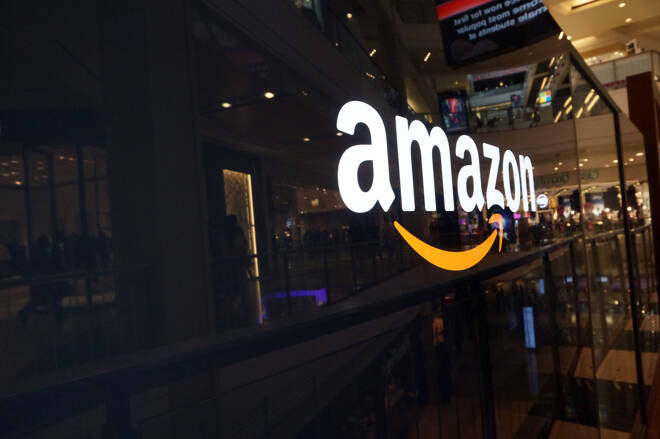Antitrust Battle Against GAFAM
Published: Dec 27, 2021, 09:09 GMT+00:00
Despite widespread and global anti-regulation enforcement efforts, there is still a long way to go to reign in the power of big tech companies.
Powerful big technology companies such as Google, Apple, Facebook, Amazon, and Microsoft have significant market share and influence on the economy. The five biggest tech companies make up 22.9% of the S&P 500. In recent years, the dominance of big tech stocks has resulted in large gains to shareholders. Considering the antitrust battle that began to take hold in July 2020, along with the projected rise in interest rates, share trading may be on the decline. The antitrust topic’s central question is to what extent do these companies wield too much power and hone monopolistic practices in the marketplace?
Big tech companies tend to control all modern technology components, which keeps other firms out of the marketplace. These anti-competitive practices manifest themself in social media, e-commerce, internet search, cloud services, and app stores. Antitrust laws provide an equal playing field for businesses that operate in a similar industry while limiting the power of big companies over their competition.
Core U.S. antitrust law was created by three pieces of legislation: the Sherman Anti-Trust Act of 1890, the Federal Trade Commission Act, and the Clayton Antitrust Act. The tech sector is now seeing the greatest antitrust test since 1998, and it is unclear how stock trading will respond to it.
Alt Text: The digital giants are regularly criticised for dominating the market by elbowing out rivals
Google and App Monetization
Alphabet, Google’s parent (GOOG), faces three pending lawsuits. The most recent one might make it harder for it to monetize some of its apps. However, antitrust legislation is unlikely to hurt the company and improve stock trading. Alphabet’s primary business is Google, which accounts for nearly all the company’s revenue. Therefore, Alphabet could unlock revenue from its non-Google businesses if antitrust pressure increases. Alphabet could also split its businesses and give stockholders shares of new companies.
Amazon and E-commerce
Amazon (AMZN) has attracted significant regulatory investigations since 2020. As recently as in September 2021, Washington, D.C., expanded its antitrust lawsuit against Amazon to challenge the online retailer’s agreements with wholesalers, or first-party sellers, in addition to third-party sellers. Amazon could potentially be broken down into smaller businesses. These might include online retail, cloud services (Amazon Web Services), transport (Flex and trucking), and media (Prime Video and MGM).
Despite this, it has been argued that Amazon will continue to trade higher. If Amazon split and the smaller companies became dividend-paying stocks, then investors would still be attracted to it and benefit more than if Amazon remained as one company.
Facebook and Social Media
Meta Platforms, formerly known as Facebook (FB), was sued in 2020 for buying up competitors Instagram and Whatsapp. It was argued that Facebook had a “personal social networking” monopoly. However, recently, a federal judge shut down the antitrust case against Facebook, who said there is no universally agreed-upon definition of personal social networking service. The result was a devastating blow to antitrust enforcement. It caused the Facebook stock to jump and its market share to exceed $1 trillion.
Apple and Vertical Integration
Apple (AAPL) currently maintains vertical integration over its technology. For instance, Apple controls the iPhone itself, the operating system, and the app store. It is even considered a “warm and fuzzy monopolist” since it does not have the same negative perception as the rest of big tech. Apple has blocked out competition from entering the market. Consumers see that Apple’s exclusive control is a threat to the economy as other business investment is pushed out. This might be harmful to share trading.
Apple still faces antitrust action in the coming years, which could impact the company’s share trading. Namely, several countries have already proposed laws targeting App Store practices or are investigating potential violations of their competition rules. These include but are not limited to the European Union, the United Kingdom, Germany, the Netherlands, Japan, South Korea, and Australia. While these actions can make Apple pay fines, it will likely not cause Apple to overhaul its practices. On December 8th, Apple won its appeal to delay implementing the court order that would allow apps to link out to other payment methods. There is a lot to be done to force big tech companies like Apple to change.
Microsoft
Despite being the world’s dominant operating system and second in cloud market share behind Amazon, unlike the rest of big tech, Microsoft (MSFT) has not engaged in antitrust practices. Therefore, the legislation has not impacted share trading, and the stock has continued to perform well.
The Bottom Line
Despite widespread and global anti-regulation enforcement efforts, there is still a long way to go to reign in the power of big tech companies. These companies are dealing with pending lawsuits and will continue to face lawsuits in the coming years. These companies will likely find a way to continue to be the most potent companies even if they lose cases. They will still find ways to be profitable and incentivize stock traders to invest in their company.
About the Author
Promotional Contentcontributor
FXEmpire provides its readers and partners with this section in order to share the value proposition and products that may be relevant for FXEmpire
Advertisement
